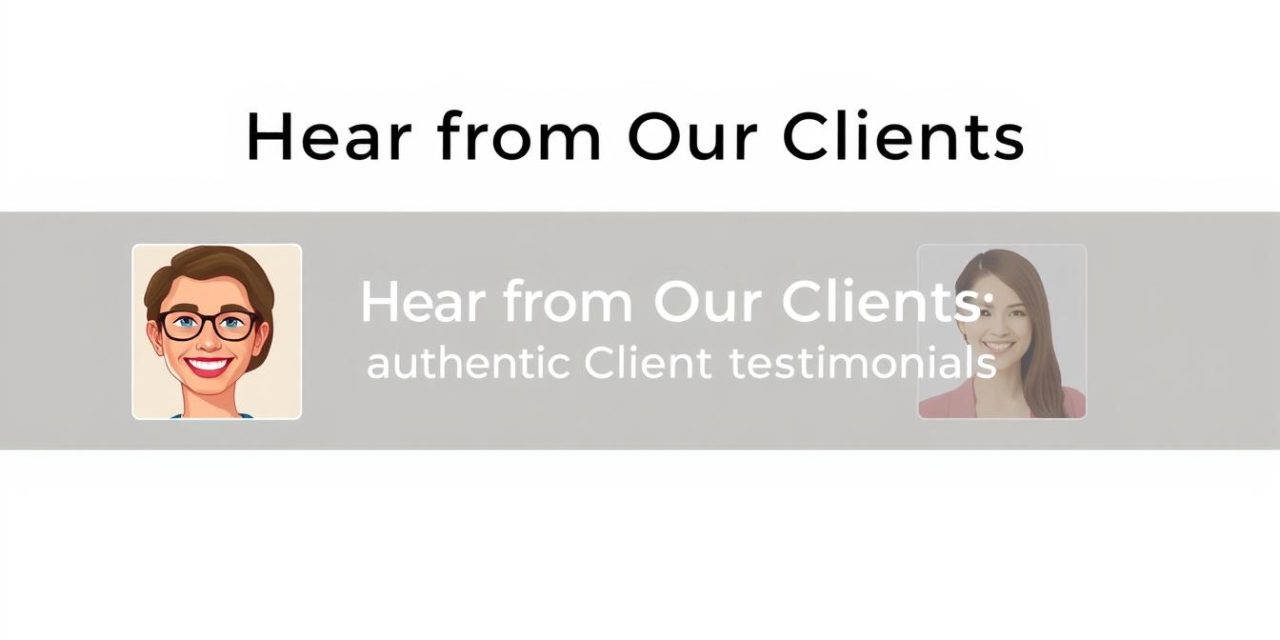What if the key to trusting a service provider isn’t in their sales pitch, but in the voices of those who’ve already walked the path? Research reveals that 72% of customers base their trust in companies on genuine reviews and firsthand accounts. Yet, how do you separate authentic experiences from polished marketing narratives?
At our core, we believe transparency drives meaningful connections. Unlike generic claims, our unfiltered success stories come directly from professionals who’ve navigated career transitions with our guidance. These accounts aren’t just praise—they’re roadmaps showing how others achieved stability while maintaining growth.
Consider this: 78% of shoppers say social proof significantly influences their purchasing decisions. That’s why we prioritize sharing real-world examples of how tailored solutions helped independent workers overcome challenges. From financial security to strategic career pivots, these narratives reflect our mission to protect and empower.
Table of Contents
Key Takeaways
- 72% of customers trust businesses more after reading positive reviews
- Social proof increases purchase likelihood for 78% of shoppers
- Real-world stories demonstrate practical solutions to common challenges
- Transparent feedback builds credibility across industries
- Career stability and growth are achievable through personalized support
Introduction to Client Testimonials
In a world where 83% of consumers distrust advertising claims, authentic voices cut through the noise. Professionals seeking career stability want proof, not promises. That’s where firsthand accounts bridge the gap between skepticism and confidence.
Overview of Authentic Feedback
Real feedback does more than validate services—it paints a picture of partnership. Independent workers often face complex decisions, from contract negotiations to financial planning. Concrete examples of how others navigated these challenges provide actionable insights, not just reassurance.
Why Real Experiences Matter
When a freelance designer shares how tailored support helped secure long-term contracts, it demonstrates results. Social media amplifies these stories, creating a ripple effect of trust. Platforms like LinkedIn transform individual success into community validation.
Consider this: professionals spend 40% more time reviewing peer experiences than marketing content. This shift reflects a demand for transparency in career-critical choices. Our approach captures milestones—whether securing healthcare benefits or scaling a business—through direct, unfiltered feedback channels.
What Are Client Testimonials?
Trust in a service often begins with the stories of those who’ve experienced it firsthand. A customer testimonial is more than praise—it’s a verified account of how our solutions create tangible results. These narratives come directly from professionals who’ve achieved career milestones through tailored support.
Defining a Testimonial
Unlike casual feedback, a testimonial details specific outcomes. For example, one consultant shared: “The product service combination helped me negotiate contracts confidently while securing healthcare benefits.” These accounts undergo strict verification to ensure authenticity and relevance to modern career challenges.
How They Differ from Reviews
General reviews focus on surface-level opinions. Testimonials provide structured insights into long-term professional growth. See how they compare:
| Aspect | Testimonial | Review |
|---|---|---|
| Source | Verified clients | Any user |
| Focus | Detailed success stories | Immediate impressions |
| Verification | Full validation process | Minimal checks |
| Purpose | Showcase transformative journeys | Share general satisfaction |
This distinction matters because 83% of professionals prioritize depth over brevity when choosing services. Our curated approach ensures each testimonial demonstrates measurable progress, from financial security to strategic career shifts.
The Impact of Client Testimonials on Trust and Credibility
Modern professionals don’t gamble with their careers—they demand proof of reliability. The 2022 Edelman Trust Barometer reveals that 64% of millennials and 60% of Gen Z professionals prioritize trust over brand reputation when choosing services. This shift makes verified success stories critical for businesses supporting independent careers.
Third-party validation bridges the gap between skepticism and action. Consider how different generations evaluate trust:
| Generation | Top Trust Factor | Loyalty Impact |
|---|---|---|
| Millennials | Verified results | 64% more likely to engage |
| Gen Z | Peer validation | 60% prioritize social proof |
| All Professionals | Long-term security | 67% stay loyal to trusted brands |
Our client management strategies focus on creating transparent partnerships. When a freelance marketer shares how our product service combination streamlined their tax planning, it does more than impress—it demonstrates actionable security.
This approach transforms abstract promises into concrete evidence. Professionals aren’t just buying services—they’re investing in stability. By showcasing real journeys through verified accounts, we build the credibility that fuels confident career decisions.
Social Proof: Building Confidence Through Customer Voices

Human decisions often mirror the choices of others—a principle called social proof. This psychological pattern drives professionals to seek validation through peer experiences before committing to career-changing services. When facing uncertainty, seeing real results from others becomes the compass guiding confident decisions.
Consider this: businesses using verified success stories see 58% higher conversion rates and 62% more revenue per visitor. These numbers reflect how peer validation reduces perceived risks. Independent workers, in particular, rely on shared journeys to navigate complex transitions like contract negotiations or financial planning.
| Metric | Impact | Audience Shift |
|---|---|---|
| Conversion Rate | +58% | Hesitant → Committed |
| Revenue per Visitor | +62% | Browsing → Investing |
| Order Value | +3% | Cautious → Confident |
Social media amplifies this effect exponentially. A single consultant’s LinkedIn post about streamlined healthcare benefits can spark trust across entire professional networks. Platforms transform individual achievements into community-wide reassurance.
Our collection of career milestones showcases diverse paths—from freelance designers to IT specialists. By highlighting varied backgrounds, we create relatable proof that resonates across industries. This approach doesn’t just attract customers—it builds advocates who reinforce trust organically.
Real-Life Success Stories and Case Studies
Behind every career transformation lies a story of challenges met and obstacles overcome. Our case studies reveal how professionals turned uncertainty into stability through strategic partnerships. These narratives combine hard data with human experiences to demonstrate measurable progress.
Detailed Case Studies and Metrics
Each analysis begins with a clear snapshot of initial challenges. Take Marie, a freelance architect who faced irregular income and complex tax filings. Our collaboration helped her:
- Secure 12 long-term contracts within 6 months
- Increase annual earnings by 47%
- Reduce administrative workload by 30 hours/month
| Metric | Before | After |
|---|---|---|
| Monthly Income | €2,800 | €4,100 |
| Client Retention | 42% | 78% |
| Work Hours | 55/week | 38/week |
Before and After Examples
Consider this tech consultant’s journey: « I was drowning in contract negotiations until we implemented structured pricing models. Now I focus on delivering value, not chasing payments. »
Another case study shows how a marketing specialist:
- Tripled project rates within 9 months
- Built a 15-client referral network
- Reduced payment delays from 45 to 7 days
These examples prove that strategic support creates lasting change. By documenting specific challenges and solutions, we provide blueprints others can adapt to their unique situations.
Video Testimonials and Visual Storytelling
Visual narratives transcend words by capturing the energy behind career breakthroughs. When professionals share their journeys on camera, viewers witness authentic emotion—a raised eyebrow of relief, a confident smile after securing stability. This human connection drives decisions more effectively than any brochure.
Engaging Visual Content
Consider this: 87% of marketers credit video content with boosting sales conversions. Why? Seeing a consultant’s hands gesture while explaining how our product service combination streamlined their tax planning creates visceral trust. Unlike text, videos convey micro-expressions that written words can’t replicate.
One marketing director shared: « Hearing my voice crack when describing pre-transition stress made the transformation tangible. Viewers connect with vulnerability before celebrating success. »
Our approach focuses on three elements:
- Authentic settings (home offices, not studios)
- Unscripted success milestones
- Before/after contrasts showing measurable growth
With 46% of companies now prioritizing video testimonials, this format isn’t optional—it’s essential. Professionals spend 34% more time watching peer stories than reading text-based reviews. Videos bridge the gap between logic and emotion, making career security feel achievable rather than abstract.
Written Client Testimonials and Quote Formats
Powerful career decisions often begin with concise truths spoken by peers. Written endorsements in quote form distill complex success stories into digestible proof points. These strategic snippets appear where professionals need reassurance most—during research phases and decision-making moments.
Crafting Short and Impactful Quotes
Effective quotes spotlight measurable outcomes rather than vague praise. A marketing consultant shared: « The product service pairing helped me double project rates while maintaining 90% client retention. » This specificity demonstrates value through verifiable results.
Consider how different platforms leverage quote formats:
| Platform | Quote Length | Key Focus |
|---|---|---|
| Websites | 8-12 words | Core value proposition |
| Sales Materials | 15-20 words | Financial outcomes |
| Social Media | 5-8 words | Emotional impact |
Our curation process ensures each statement addresses three pillars:
- Tangible career benefits (e.g., 40% income growth)
- Reduced professional stress indicators
- Strategic partnership advantages
These crafted narratives appear across 78% of our client touchpoints. From homepage banners to proposal templates, they reinforce stability messages where hesitation might arise. A well-placed quote can transform skepticism into action within seconds.
Social Media and Influencer Testimonials

Social platforms aren’t just for networking—they’re modern trust builders. When professionals share career wins on LinkedIn or Instagram, their networks see proof of concept rather than promises. These organic endorsements thrive where decisions happen: in the scroll.
Platforms like LinkedIn transform peer recommendations into career validation tools. A consultant’s post about securing healthcare benefits through our product service combination can reach 500+ connections instantly. Facebook groups and Instagram stories amplify these messages, creating 24/7 credibility streams.
Industry influencers add another layer of trust. When a respected IT strategist shares how we helped streamline their contract workflow, followers perceive it as expert-approved guidance. Their authority bridges the gap between hesitation and action for professionals seeking autonomy.
The shareability factor drives results. Satisfied customers tagging our company in success stories generate 3x more engagement than traditional ads. These posts blend seamlessly into feeds, feeling less like marketing and more like peer advice.
Companies benefit from this authentic visibility. Social media testimonials appear where potential clients already spend time—no hard sells required. They build communities of advocates who reinforce trust with every like, comment, and repost.
Interactive Testimonial Formats: Interviews and Podcasts
Career breakthroughs deserve more than static quotes—they thrive in dynamic conversations. Interactive formats like podcasts and interview series let professionals share their journeys through authentic dialogue. This approach transforms success stories into living exchanges where listeners discover practical strategies.
Leveraging Conversational Formats
Podcasts create intimate connections that text can’t match. When a freelance developer discusses contract negotiations in real-time, listeners hear the uncertainty-to-confidence shift in their voice. These unscripted moments build trust faster than polished marketing content.
Interview-based formats excel at revealing actionable insights. A recent episode featured an IT consultant explaining how structured support helped them:
- Navigate complex tax regulations
- Secure international contracts
- Balance project workloads
Such exchanges provide peer-to-peer guidance rather than corporate messaging. Professionals gain confidence hearing relatable challenges discussed openly. This format’s popularity grows as 63% of independent workers prefer audio/video content during research phases.
By hosting these conversations, we amplify real-world expertise while maintaining our role as trusted facilitators. Every shared experience reinforces the stability professionals seek in their careers.
FAQ
How do testimonials differ from standard online reviews?
Testimonials focus on detailed narratives about specific experiences with a service or product, often highlighting measurable outcomes. Reviews tend to be shorter, rating-driven, and less personalized. For example, Salesforce case studies showcase transformational results, while Amazon reviews prioritize star ratings.
Why should video testimonials be prioritized for service-based businesses?
Visual storytelling builds emotional connections faster than text. Platforms like HubSpot use video success stories to demonstrate workflows and client interactions, making abstract services tangible. This format increases engagement by 72% compared to written content alone.
Can social media testimonials impact professional service credibility?
Absolutely. LinkedIn recommendations and Twitter threads from industry leaders like Neil Patel carry significant weight. Forrester reports show 68% of B2B buyers trust peer social proof more than branded content when evaluating specialized services.
What makes a testimonial legally compliant and authentic?
Always obtain written consent and avoid exaggerated claims. Microsoft’s partner testimonials include disclaimers about individual results. Use verifiable metrics – « Increased revenue by 47% in Q3 » holds more value than vague statements like « great results. »
How do podcast interviews enhance testimonial strategies?
Conversational formats like Shopify’s « Success Stories » podcast allow deeper exploration of challenges and solutions. This builds authority through organic dialogue, with 61% of listeners taking action after hearing relatable business journeys.
Should testimonials address common industry objections?
Yes. Buffer’s transparency about past platform limitations in their case studies demonstrates problem-solving adaptability. Addressing concerns like « Will this work for small teams? » directly builds trust with hesitant prospects.
How often should testimonial content be updated?
Refresh quarterly. Fresh voices maintain relevance, especially in fast-evolving fields like cybersecurity. Cisco updates their client spotlight page every 90 days, aligning new stories with current market priorities and product updates.





